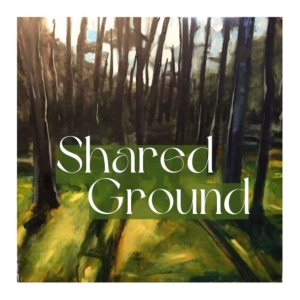
Shared Ground
Science Podcasts
Meet knowledge holders, foresters, naturalists, activists, scientists, visionaries, and outdoorsy people of all stripes to share delight in the wonders of forest ecosystems. We talk about issues of forestry, conservation and interconnected topics, and discover sustainable, ecological, respectful ways of relating to the forest. Maintaining and regenerating forest ecosystems is one of the most important necessities of our time, and contributes to everything from carbon sequestration to healthy children. Join Amanda Bostlund as she meets with various folks in Mi’kma’ki (Nova Scotia) and beyond to talk about forests as our shared ground, for all species, humans and not. We explore the incredible value of thriving forests, methods and mindsets for their protection, and regenerative solutions for how we interact with and within them. One of the main purposes of this podcast is to hear opinions, perspectives and ideas from many different people, and not to treat any of them as the be all and end all. What you hear does not necessarily represent the opinions of the host. The hope is that you consider whatever content you hear for yourself and enjoy the journey of making sense of these complicated, interconnected issues of our time. Find us on Facebook: https://www.facebook.com/sharedgroundpodcast/ Support Shared Ground: https://ko-fi.com/sharedground Podcast artwork was generously provided by Andrew Danylewich of ADJA Studio and Gallery: https://www.adjagallery.com/
Location:
Canada
Genres:
Science Podcasts
Description:
Meet knowledge holders, foresters, naturalists, activists, scientists, visionaries, and outdoorsy people of all stripes to share delight in the wonders of forest ecosystems. We talk about issues of forestry, conservation and interconnected topics, and discover sustainable, ecological, respectful ways of relating to the forest. Maintaining and regenerating forest ecosystems is one of the most important necessities of our time, and contributes to everything from carbon sequestration to healthy children. Join Amanda Bostlund as she meets with various folks in Mi’kma’ki (Nova Scotia) and beyond to talk about forests as our shared ground, for all species, humans and not. We explore the incredible value of thriving forests, methods and mindsets for their protection, and regenerative solutions for how we interact with and within them. One of the main purposes of this podcast is to hear opinions, perspectives and ideas from many different people, and not to treat any of them as the be all and end all. What you hear does not necessarily represent the opinions of the host. The hope is that you consider whatever content you hear for yourself and enjoy the journey of making sense of these complicated, interconnected issues of our time. Find us on Facebook: https://www.facebook.com/sharedgroundpodcast/ Support Shared Ground: https://ko-fi.com/sharedground Podcast artwork was generously provided by Andrew Danylewich of ADJA Studio and Gallery: https://www.adjagallery.com/
Language:
English
Action and Collaboration (a compilation)
Duration:00:54:20
It's Better with Bees! A story of hope and collaboration
Duration:00:40:42
South Spore Mushrooms: Amanda’s FUNgal conversation with Josh Clark
Duration:00:37:55
South Spore Mushrooms: A rebroadcast of CVCR interview with Josh Clark
Duration:00:28:26
Restoring Relationship with the Lands (a compilation)
Duration:00:42:15
The Sky Pillar: A bridge to the night
Duration:00:34:33
SOOFstock: A festival for the forests
Duration:01:18:57
Inspiration from a Community Food Forest
Duration:00:57:58
Ecosystem-driven forestry on private land, with Pat Wiggin
Duration:01:04:33
A Glimpse Into the Deanery Project
Duration:00:42:25
Engaging with Waste, Weeds and Wastelands with Jenn MacLatchy
Duration:00:49:18
Managing for Healthy Forests with Bob Bancroft
Duration:00:57:49
A Two-Eyed Seeing Approach with Clifford Paul
Duration:00:54:28
Bob Bancroft at the Save Our Old Forests launch
Duration:00:23:01
Donna Crossland at the Save Our Old Forests launch
Duration:00:35:56
Save Our Old Forests: A Conversation with Rob Bright
Duration:00:51:10
Meeting Mi'kmaw Knowledge Holder Shawn Feener
Duration:01:05:04
A Conversation with Retired Forest Ranger Peter Romkey
Duration:01:02:08
The Public's Power, and Canoeing for Conservation- with Mike Lancaster
Duration:01:11:29
Decolonization and Healing with Diane Obed
Duration:00:56:36